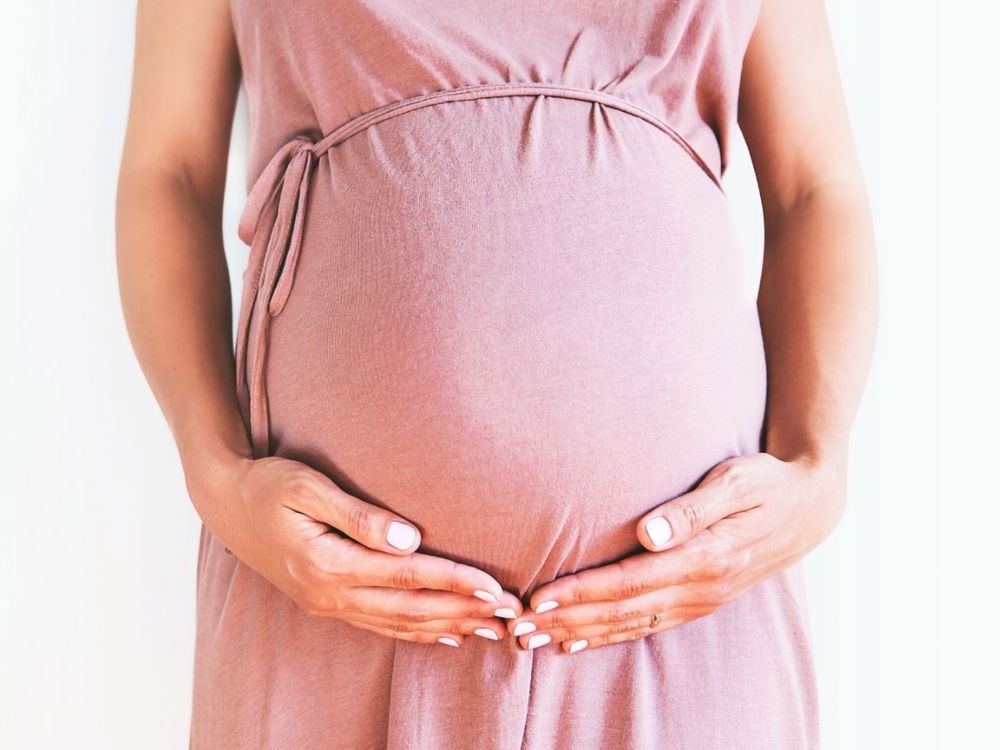Hair loss in new mums

Does hair become denser and shinier during pregnancy?
This may be true for some women, thanks to the elevated levels of estrogen that come with pregnancy, which can slow down hair loss. However, some other mothers may experience hair thinning or loss either during pregnancy or in the months immediately following childbirth.
If you are experiencing hair loss, there's no need to worry, as hair loss is a natural occurrence and can be caused by various factors, such as hormonal fluctuations, blood pressure changes in the body, or other medical conditions associated with pregnancy.
While pregnancy doesn't necessarily mean you will lose part of your hair (in fact, you may find it grows more easily), early hair loss could be linked to underlying health issues that existed before pregnancy.
Keep reading to learn more about the reasons for hair loss, how to treat it, and prevent it during pregnancy.
Changes in Hair During Pregnancy
Hormonal changes during pregnancy can affect your hair, making it either thicker or thinner.
Hair may become denser:
Your hair has a natural life cycle. It grows, then rests for a couple of months before being pushed out by new hair growing from the same follicle. During pregnancy, this cycle changes.
Many women feel that their hair becomes denser after about 15 weeks of pregnancy. It's not because each strand of hair becomes thicker, but because the hair stays in the growth phase longer compared to its natural cycle, resulting in less hair loss, thanks to increased estrogen levels.
Hair may become finer:
Some women experience hair loss during pregnancy due to a drop in estrogen levels, which can happen because of factors such as:
- Stopping birth control pills.
- Experiencing a miscarriage or stillbirth.
- Having a hormonal imbalance during pregnancy.
When estrogen levels return to normal, most women typically experience hair loss. This causes the extra hair cycle to shift from the growth phase to the resting phase due to the return of estrogen to its natural state, leading to more hair loss than usual. This may last for about 3 to 4 months after giving birth.
However, there's no need to worry about hair loss during this stage. Your hair growth will return to normal by the time your child is around 12 months old. If you feel that your hair loss is more than usual or hasn't returned to normal growth after 12 months, consult your doctor.
How can you prevent hair loss during pregnancy?

There are some ways to address hair loss during pregnancy, but they might not work for all causes of hair loss during this period. So, if you suspect that your hair loss is due to issues like anemia or thyroid problems, it's best to consult your doctor. They can guide you toward a solution.
To prevent hair loss during pregnancy, you can try the following:
- Avoid tight hairstyles: If you usually prefer hairstyles like buns, braids, or ponytails, consider changing your hair styling habits during pregnancy.
- Manage stress: Excessive stress can strain hair follicles, increasing the risk of hair loss. Try to avoid using hot oils, straighteners, and other heavy hair styling tools. Since your hair might be delicate at this time, it's better to let it relax.
- Use a wide-toothed comb: When combing your hair, opt for a wide-toothed comb. These are gentler on the hair and reduce the stress on it.
- Avoid medications: While some medications like minoxidil may help with hair regrowth, they are not recommended for pregnant or breastfeeding women.
- Maintain a healthy diet: Ensure you follow a balanced, nutritious diet rich in vitamins C, E, and zinc, as deficiencies in these nutrients can contribute to excessive hair loss.
Other Causes of Hair Loss During Pregnancy:
While hormonal changes are the most common cause of hair loss during pregnancy, there are alternative reasons that can contribute to hair loss, including:
- Thyroid problems: It's believed that around 3% of pregnant women suffer from thyroid issues during pregnancy. Thyroid underactivity, which results in the reduced production of thyroid hormones, is often a cause of hair loss. It can also lead to other problems like fatigue and muscle pain.
- Postpartum hair loss: We've discussed hair loss during pregnancy, but it's also common for hair to shed after childbirth. Remember what we said about hormones that make your hair look fabulous during pregnancy? Often, after pregnancy, your hormones return to their normal levels, which can occasionally cause hair loss for a short period.
- Anemia: Pregnant women are more prone to iron deficiency, which means you don't have enough red blood cells to carry all the oxygen your body needs. As a result, hair loss can be the outcome.
Sometimes, hair loss during pregnancy might be due to something entirely unrelated to pregnancy. If your hair loss is accompanied by skin rashes, itching, or irritation, it might be due to a condition called "alopecia." Stress or hair pulling can also cause hair loss. Another possibility is "autoimmune alopecia," an autoimmune condition that leads to unexpected or cyclical patterns of hair loss.
Tips from dermatologists for new mothers dealing with hair loss:

If excessive hair loss is bothering you, these tips from dermatologists can help you regain your natural hair thickness. Use shampoos and conditioners that boost hair density. Here's what dermatologists recommend and what to avoid:
- Use an intensive shampoo: These types of shampoos often contain ingredients like protein that coat the hair, making it appear fuller.
- Avoid any shampoo labeled "moisturizing" as it usually contains heavy ingredients that can weigh down your hair, making it appear weak.
- Use a conditioner specifically designed for thin hair, as it contains lightweight ingredients that won't weigh down your hair.
- Apply conditioner primarily to the ends of your hair. Putting conditioner on your scalp and the length of your hair can make it feel heavy. You can use a chemical-free conditioner like Zen Hair to keep your hair damage-free.
- Avoid "heavy-duty" conditioners as they tend to weigh down the hair.
What should you expect?
Hair loss during pregnancy, while not common, is a natural occurrence, especially when it's related to hormonal changes or certain health conditions. Hair growth should typically resume over time or with treatment, and post-pregnancy hair loss usually peaks around four months after giving birth.
The good news is that you are likely to regain your normal hair growth within six to nine months, around your baby's first birthday. If your hair loss continues or you notice other symptoms, consider reaching out to your doctor to determine if there might be another underlying cause of hair loss.
For more information on hair care, you can visit our Zen Hair blog.






